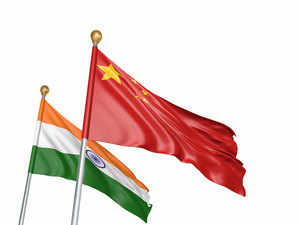NEW DELHI: India is looking at different arrangements to give minimum tariff cuts to Chinese goods and delay the concessions by a long number of years amid industry’s fears of cheap imports from Beijing flooding the country as it prepares to conclude a mega regional trade pact next month.
In marathon meetings with industry on Monday in Mumbai, which will continue on Tuesday in Delhi, commerce and industry minister Piyush Goyal heard their objections and the products they want to be protected in the Regional Comprehensive Economic Partnership (RCEP).
“The government has discussed different categories of phasing out the duty cuts but that is a matter of negotiation,” said a person aware of the meetings.
New Delhi has considered duty cuts on Chinese goods over a maximum 25 year period.
The stakeholder consultations could be the last set of talks ahead of trade minister-level deliberations in China on the proposed agreement in August 2-3 when it is expected to get concluded after having been negotiated for seven years.
“Convened a consultation meet on Regional Comprehensive Economic Partnership (RCEP) with industry representatives from various sectors,” Goyal said in a tweet on Monday.
He met representatives from the industries of steel, copper, textiles, aluminium, engineering, pharmaceuticals, leather and food, among others wherein most sectors expressed fears about Chinese dumping.
“The deliberations during today's meeting will help put forth our agenda at RCEP Trade Ministers meeting in Beijing next month,” he tweeted.
RCEP is a regional trade agreement spanning the 10 Asean countries and the group’s six free-trade agreement partners — Australia, New Zealand, Japan, China, South Korea and India. Though talks on seven of the sixteen chapters of the agreement are complete, the key areas of goods, services and investment are still being negotiated.
Sectoral concerns
While the textile industry has sought protection of man made fibre cheap imports from other RCEP members, auto industry wants 28 sensitive automotive tariff lines to stay on the negative list for all member countries.
“Our exports have suffered in earlier trade agreements because we didn’t pay much attention to exports. But we must look at our exports in RCEP because of the global trade environment and our slowing shipments,” said an industry representative who attended Monday’s meeting.
As per the official, the government wanted to know the number of years various industries need to give zero duties to imports from the RCEP countries especially China.
The aluminium industry wants aluminum and its articles in the negative list or the exceptions to products they want to open up for imports under RCEP and the copper association has sought zero duty on copper ore and concentrate to prevent inverted duty structure.
“The minister understood our concerns and said he would take care of those. Another meeting with industry could be likely before the ministerial,” said another industry representative present at one of the meetings.
Official level meetings are slated to take place later this week in China before the ministerial.
Published On : 22-07-2019
Source : Economic Times

